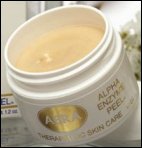Warning: Phthalates in Cosmetics, Toys & More Can Pose Health Dangers
by www.SixWise.com
You may not have heard of phthalates, but with over 1 billion pounds
produced worldwide each year, you've surely used a product that
contains them.
Phthalates are widely used industrial compounds used as plastic
softeners and in hairsprays, perfumes, cosmetics, toys, shower curtains,
wood finishers, lubricants, certain medical devices and more. Even
the much-loved "new car smell" is partly due to phthalates
used in car manufacturing.
|

Phthalates may pose a great danger to children, particularly
while still in the womb
|
What's the Problem With Phthalates?
Animal studies on certain phthalates have shown the chemicals may
cause a variety of problems, including reproductive
and developmental harm, organ damage, immune suppression, endocrine
disruption and cancer.
The major concern is that, as these chemicals are so ubiquitous
in our environment, no one knows for sure what the long-term exposure,
even in small doses, may be doing to humans, and particularly developing
infants.
Studies, including one conducted by the Centers for Disease Control
and Prevention (CDC) and published in Environmental
Health Perspectives, found that people have higher levels of
certain phthalates in their systems than was previously thought.
Humans can be exposed not only through ingestion and inhalation,
but also by direct injection and skin contact.
Perhaps most concerning are these chemicals' effects on reproductive
health. In a study published in the May 2005 Environmental Health
Perspectives, it was found that pregnant women exposed to common
levels of phthalates might have baby boys with smaller genitals
and incomplete testicular descent.
|

Baby boys born to moms with high levels of phthalates in
their systems have a 10-times greater chance of suffering
reproductive damage.
|
The higher the woman's exposure, the more likely the baby's reproductive
health would be harmed. The study also reported
that changes occurred at phthalate levels found in 25 percent of
U.S. women.
In fact, among the women with the highest exposures (this 25 percent
of the women), their sons were 10 times more likely to have a shorter-than-expected
distance between the anus and the base of the penis, which is an
indicator of impacts on their reproductive systems.
While the Cosmetic Toiletry and Fragrance Association said the
"use of phthalates in cosmetics and personal care products
is supported by an extensive body of scientific research and data
that confirms safety," the chief of endocrinology at Northwestern
University, Andrea Dunaif, said the findings present "strong
evidence in humans that this endocrine-disrupting chemical is associated
with changes in boys."
Phthalates and Sperm Damage
A 2002 study conducted by Dr. Susan Duty, a post-doctoral scientist
at the Harvard School of Public Health, and others also found an
association between sperm damage and phthalate exposure in adult
men. Said Dr. Ted Schettler, science director of the Science
and Environmental Health Network:
"The correlation found in this study is extremely troubling
and deserves urgent follow up. The last thing you want is DNA
damage to sperm, which can lead to infertility and may also be
linked to miscarriages, and birth defects, infertility and cancer
in offspring ... The link with [the phthalate] DEP is also
a concern because, until now, DEP has been considered one of the
least toxic phthalates when examined in other ways. Since everyone
in the general population is exposed to phthalates from a variety
of sources, the results of this report, if confirmed and verified,
identify a significant risk to public health."
|
Clean and Moisturize Your Skin and Hair
Naturally ... With No Phthalates or Other Harmful Chemicals!

SixWise.com is committed to researching and providing you
cosmetic products that are natural, effective and free of
harmful toxins like phthalates. No matter what your skin or
hair type, browse through these two sections below for products
that come with our highest approval!
|
Further, another study in Environmental
Health Perspectives linked phthalates found in household
dust to rhinitis, eczema and asthma in children.
Where are Phthalates Found?
Many soft plastics like plastic wrap, plastic storage containers
and toys contain phthalates that can outgas into your food and air.
With toys, small children may put them in their mouths and ingest
phthalates that way. However, personal care products, including
nail polish, mascara, fragrances, shampoos and conditioners, lotions,
hair growth formulations, antiperspirants, and sunscreen, are a
large exposure source. Gum, candy and oral pharmaceuticals may also
contain them.
Phthalates are so widely used that it may be nearly impossible
to eliminate your exposure entirely. However, your best bet at limiting
your exposure (something that's important for everyone but particularly
important for pregnant women or women of child-bearing age) is to
avoid using plastic when storing your food and drinks, and diligently
read the back of cosmetic labels. Phthalates may be listed as:
- Dibutyl phthalate (DBP)
- Diethyl phthalate (DEP)
- Butylbenzyl phthalate (BBP)
Please also take advantage of our safe
hair care and safe
skin care pages. Sixwise.com has done the research for
you, and on these pages you'll find a wide variety of high-quality
phthalate-free cosmetics for your hair and skin.
Recommended Reading
The
Toxic Danger of Fabric Softener and Dryer Sheets
PEG
Compounds in Cosmetics: A Little-Known Danger to You
Sources
USA
Today May 26, 2005
Our
Stolen Future: About Phthalates
Environmental
Working Group Report: Phthaltes
Sperm
Damage Linked to Phthalate